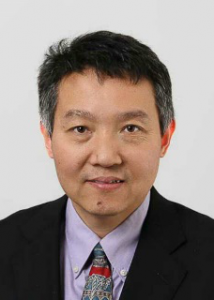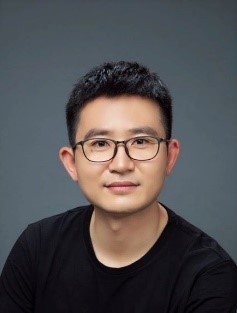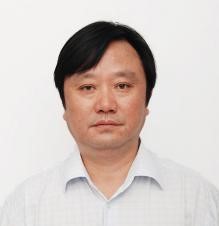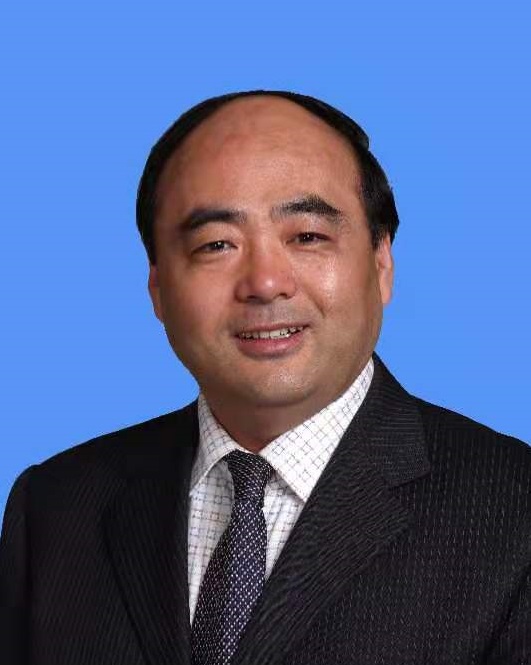

The plenary lectures will be delivered by:
~~~~~~~~~~~~~~~~~~~~~~~~~~~~~~~~~~~~~~~~~~~~~~~~~~~~~~~~~~~~~~~~~~~~~~~~~~~~~~~~~~~~~~~~~~~~~~
Huei Peng
University of Michigan, Professor, the U.S. chief scientist for the clean energy vehicle program, a collaboration between the U.S. and Chinese governments
彭辉,密西根大学,教授,中美政府合作清洁能源汽车项目美方首席科学家
 Huei Peng received the Ph.D. degree from the University of California, Berkeley, CA, USA, in 1992. He is a Professor with the Department of Mechanical Engineering, University of Michigan, Ann Arbor. His research interests include adaptive control and optimal control, with emphasis on their applications to vehicular and transportation systems. His current research focuses include design and control of electrified vehicles, and connected/automated vehicles. He currently serves as the Director of Mcity, which studies connected and autonomous vehicle technologies and promotes their deployment.
Huei Peng received the Ph.D. degree from the University of California, Berkeley, CA, USA, in 1992. He is a Professor with the Department of Mechanical Engineering, University of Michigan, Ann Arbor. His research interests include adaptive control and optimal control, with emphasis on their applications to vehicular and transportation systems. His current research focuses include design and control of electrified vehicles, and connected/automated vehicles. He currently serves as the Director of Mcity, which studies connected and autonomous vehicle technologies and promotes their deployment.
Title
Connected and Automated Vehicles: History, Development, Mcity, and the Future
Abstract
Despite continued progress in technologies, driver education and enforcement, the number of fatalities and injuries caused by ground vehicles remain high. In the U.S., about 35,000 people were killed in 2015 and worldwide the number is more than a million. Technologies supporting the development of automated vehicles and connected vehicles have the potential to improve motor vehicle safety and dramatically impact congestion, energy consumption and mobility. In this talk, the key recent developments will be summarized, including activities at Mcity.
~~~~~~~~~~~~~~~~~~~~~~~~~~~~~~~~~~~~~~~~~~~~~~~~~~~~~~~~~~~~~~~~~~~~~~~~~~~~~~~~~~~~~~~~~~~~~~~
Jianbo Lu
Group Leader of Robotics & AI, Ford Motor Company
吕建波,美国福特汽车公司
 Dr. Jianbo Lu received his Ph.D. degree in Aerospace Engineering from the Purdue University (1997). From 1997 to 2000, he was an advanced project engineer at Delphi Corp. Since 2000, he has been with Ford Motor Company, where he is currently the Technical Expert and Group Leader in Robotics and Intelligent Vehicles at the Research & Innovation Center. He authored about 90 publications in journals, conferences and books in dynamical system & controls and their applications. He holds 139 US patents in automotive controls, active safety and driver assistance, and intelligent vehicles. He was awarded 2 times with the highest Ford corporate award—the Henry Ford Technology Award (in 2002 and 2013)—for developing and implementing automotive technologies with significant business impact. Applications of his work can be found in a number of current implementations in tens of millions of vehicles. Dr. Lu is on the Editorial Board of Int. J. of Vehicle Autonomous Systems and Int. J. of Vehicle Performance. He was an Associate Editor for the IEEE Trans. on Control Systems Technology (2010-2016) and the IFAC J. of Control Practice Engineering (2008-2014). He served as the Vice Chair for Industry and Application at the 2015’s American Control Conference. Dr. Lu is the founding Co-Chair of the Technical Committee on “Intelligent Vehicular Systems and Control” under the IEEE Society of System, Man and Cybernetics. He is a Senior Member of IEEE.
Dr. Jianbo Lu received his Ph.D. degree in Aerospace Engineering from the Purdue University (1997). From 1997 to 2000, he was an advanced project engineer at Delphi Corp. Since 2000, he has been with Ford Motor Company, where he is currently the Technical Expert and Group Leader in Robotics and Intelligent Vehicles at the Research & Innovation Center. He authored about 90 publications in journals, conferences and books in dynamical system & controls and their applications. He holds 139 US patents in automotive controls, active safety and driver assistance, and intelligent vehicles. He was awarded 2 times with the highest Ford corporate award—the Henry Ford Technology Award (in 2002 and 2013)—for developing and implementing automotive technologies with significant business impact. Applications of his work can be found in a number of current implementations in tens of millions of vehicles. Dr. Lu is on the Editorial Board of Int. J. of Vehicle Autonomous Systems and Int. J. of Vehicle Performance. He was an Associate Editor for the IEEE Trans. on Control Systems Technology (2010-2016) and the IFAC J. of Control Practice Engineering (2008-2014). He served as the Vice Chair for Industry and Application at the 2015’s American Control Conference. Dr. Lu is the founding Co-Chair of the Technical Committee on “Intelligent Vehicular Systems and Control” under the IEEE Society of System, Man and Cybernetics. He is a Senior Member of IEEE.
Title
Intelligent Vehicular Systems and Control
Abstract
Mobility is one of the most important human activities, not only because of its relationship with traffic, but also because of its impact on several other dimensions. Making mobility smart aims to developing intelligent means, including both physical and cyber-physical systems, to move people and goods inter or intra cities with the ultimate goal of zero fatality, zero injury, zero emission, zero carbon footprint, zero traffic congestion, and zero unnecessary energy waste. Vehicular systems, as one of the intelligent means, currently see many technology advancements ranging from connected systems to autonomous vehicles. Control plays an essential role in delivering the functions for a vehicular system to move intelligently to achieve smart mobility goals. In this talk, we examine the relationship among mobility, vehicular systems, and its controls, and provide some of the industrial trends and examples on how to use vehicular technologies to advance modern mobility.
~~~~~~~~~~~~~~~~~~~~~~~~~~~~~~~~~~~~~~~~~~~~~~~~~~~~~~~~~~~~~~~~~~~~~~~~~~~~~~~~~~~~~~~~~~~~~~~
Dongpu Cao
University of Waterloo, Canada Research Chair in Driver Cognition and Automated Driving, Director of CogDrive Lab
曹东璞,滑铁卢大学,加拿大驾驶员认知与自动驾驶领域首席科学家,认知自动驾驶实验室主任
 曹东璞,加拿大首席科学家(Canada Research Chair in Driver Cognition and Automated Driving),滑铁卢大学认知自动驾驶实验室(CogDrive Lab)主任,副教授。在驾驶员行为与认知、无人驾驶、人车协同与认知自动驾驶等领域发表论文180余篇(Science Robotics, PECS, VSD, IEEE汇刊80余篇),获2012 SAE Arch T. Colwell Merit Award和3次国际会议最佳论文奖。担任IEEE TVT, TIE, T-ITS, IEEE/ASME TMECH, ASME JDSMC等期刊副主编, IEEE智能交通学会(ITSS)协同驾驶技术委员会共同主席,中国自动化学会CAA平行智能专委会主任等。
曹东璞,加拿大首席科学家(Canada Research Chair in Driver Cognition and Automated Driving),滑铁卢大学认知自动驾驶实验室(CogDrive Lab)主任,副教授。在驾驶员行为与认知、无人驾驶、人车协同与认知自动驾驶等领域发表论文180余篇(Science Robotics, PECS, VSD, IEEE汇刊80余篇),获2012 SAE Arch T. Colwell Merit Award和3次国际会议最佳论文奖。担任IEEE TVT, TIE, T-ITS, IEEE/ASME TMECH, ASME JDSMC等期刊副主编, IEEE智能交通学会(ITSS)协同驾驶技术委员会共同主席,中国自动化学会CAA平行智能专委会主任等。
Title
平行认知自动驾驶:从单车认知到社会认知
Abstract
自动驾驶在未来开放道路(特别是含混合车流)的大规模落地应用面临着巨大挑战。本报告从自动驾驶认知决策与规划的角度,汇报两方面研究进展:一是基于个体认知的单车及车-车交互的认知决策与规划研究,二是基于社会认知框架下的面向智能网联的平行认知自动驾驶研究进展。
~~~~~~~~~~~~~~~~~~~~~~~~~~~~~~~~~~~~~~~~~~~~~~~~~~~~~~~~~~~~~~~~~~~~~~~~~~~~~~~~~~~~~~~~~~~~~~~
Daisheng Zhang
Hefei University of Technology, Professor, Dean of School of Automotive and Transportation Engineering
张代胜,合肥工业大学,教授,汽车与交通工程学院院长
 张代胜,合肥工业大学汽车与交通工程学院教授、院长。从事车辆动力学分析与诊断方向的研究,主讲本科生和研究生汽车理论、车辆诊断理论等课程。主持省部级等科研项目100余项。获省部级科技进步奖4次,先后在《机械工程学报》、《汽车工程》等杂志发表论文50余篇。获国家和省级教学成果奖3次。担任《汽车工程》、《汽车工程学报》等杂志编委,并任中国汽车工程学会理事、安徽省汽车工程学会常务副理事长及秘书长。
张代胜,合肥工业大学汽车与交通工程学院教授、院长。从事车辆动力学分析与诊断方向的研究,主讲本科生和研究生汽车理论、车辆诊断理论等课程。主持省部级等科研项目100余项。获省部级科技进步奖4次,先后在《机械工程学报》、《汽车工程》等杂志发表论文50余篇。获国家和省级教学成果奖3次。担任《汽车工程》、《汽车工程学报》等杂志编委,并任中国汽车工程学会理事、安徽省汽车工程学会常务副理事长及秘书长。
Title
智能车辆技术创新人才培养实践探索
Abstract
智能车辆技术现状及发展趋势,智能车辆技术对人才培养提出的挑战,智能车辆技术人才培养体系及途径探索。
~~~~~~~~~~~~~~~~~~~~~~~~~~~~~~~~~~~~~~~~~~~~~~~~~~~~~~~~~~~~~~~~~~~~~~~~~~~~~~~~~~~~~~~~~~~~~~
Chenghui Zhang
Shandong University, Professor, Dean of the School of Control Science and Engineering
张承慧,山东大学,教授,控制科学与工程学院院长
 张承慧,院长、教授、博导,教育部,山东省泰山学者特聘教授,教育部工程研究中心主任。系“新世纪百千万人才工程”国家级人选,国家基金委创新群体负责人、教育部创新团队带头人。山东大学教学指导委员会副主任。曾获国家宝钢教育金会优秀教师特等奖、山东省首届十大师德标兵等称号。主持国家“863计划”项目2项,其中1项为项目首席专家,国家“973计划”课题1项。主持国家基金项目10项,其中创新群体项目1项、重大仪器项目1项、重点项目2项、重大国际合作项目1项。以第一完成人获国家科技进步二等奖1项、国家级教学成果二等奖2项,获教育部、山东省科技进步一等奖各1项;中国自动化学会高等教育教学成果特等奖1项、山东省教学成果一等奖2项。在国际权威期刊和会议上发表论文270余篇,授权专利73件。出版著作3部。
张承慧,院长、教授、博导,教育部,山东省泰山学者特聘教授,教育部工程研究中心主任。系“新世纪百千万人才工程”国家级人选,国家基金委创新群体负责人、教育部创新团队带头人。山东大学教学指导委员会副主任。曾获国家宝钢教育金会优秀教师特等奖、山东省首届十大师德标兵等称号。主持国家“863计划”项目2项,其中1项为项目首席专家,国家“973计划”课题1项。主持国家基金项目10项,其中创新群体项目1项、重大仪器项目1项、重点项目2项、重大国际合作项目1项。以第一完成人获国家科技进步二等奖1项、国家级教学成果二等奖2项,获教育部、山东省科技进步一等奖各1项;中国自动化学会高等教育教学成果特等奖1项、山东省教学成果一等奖2项。在国际权威期刊和会议上发表论文270余篇,授权专利73件。出版著作3部。
Title
车载动力电池综合测试与智能模拟控制关键技术与装备
Abstract
电池测试系统是评估电池状态、研究分析电池性能不可或缺的仪器设备,而测试的准确性直接决定了所获取的电池数据及性能评价的真实性。报告结合承担的国家基金委重大仪器专项项目阐述了国内外技术现状,报告了新一代动力电池综合测试与智能模拟仪器研制情况。包括建立电池性能参数的综合评价体系,为研发动力电池及BMS等提供科学全面的数据与方法,为测试电动汽车等电动装备提供科学仪器,以推进动力电池及相关产业健康发展和科学研究。
